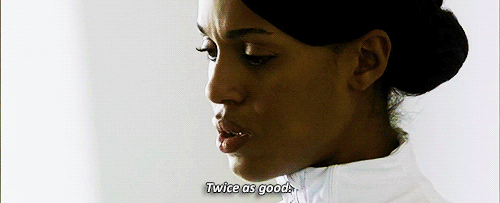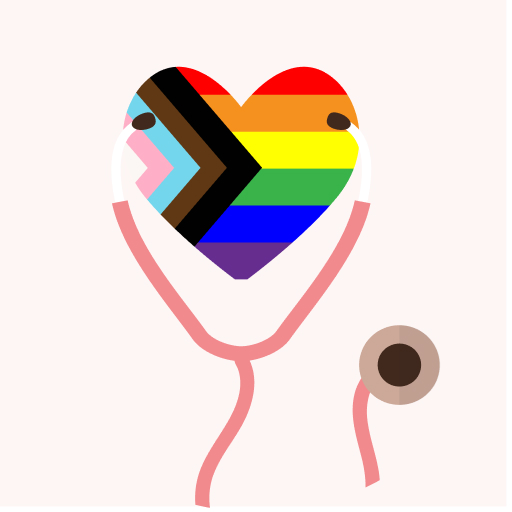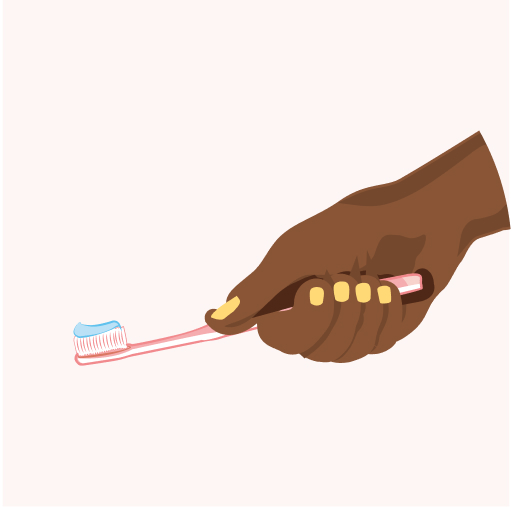
Black Women and the Impostor Syndrome Struggle
You’ve been feeling like a fraud – like you’ve tricked everyone into thinking you’re smarter, more talented, or more competent than you really are. No matter how much positive feedback you receive, part of you worries that you’re going to be found out. Or maybe you’ve been the smart one, the capable one, or the one that things have just come easily for, but now you’re struggling. You start to doubt if you were ever really as skilled or intelligent as you’d thought.
Does this sound like you? Then you are likely suffering from the imposter syndrome, and you are not alone.
It is commonly said that it takes 10,000 hours to become an expert in something. But how long does it take to finally believe that you know what you’re doing? As a licensed psychotherapist, I know that the word “syndrome” can seem like something that requires a formal diagnosis and a trip to your local pharmacy. The imposter syndrome isn’t a medical or genetic condition, but instead a series of attitudes, thoughts, mental habits, and fears that can have some pretty serious emotional, relational, and professional consequences if left unchecked. And it is incredibly common. See if you can relate:
As first described by psychologists Pauline Clance and Suzanne Imes in 1978, the imposter syndrome is characterized by persistent doubt about one’s own capabilities. Even if there is overwhelming evidence to the contrary, people can’t help but worry that they are undeserving of their accomplishments and live in fear of being exposed as a fraud. The consequences of this fear show up in behaviours like minimizing, self-criticism, or overcompensating. Can you relate to any of these statements?
“I just got lucky.”
“I’m not actually smart, I have to work very hard.”
“If I can do it, it must be easy.”
“I can’t ask for help, then they’ll know I don’t know what I’m doing”
“I don’t know how I got in, but I don’t belong here”
If you are a woman, the answer is most likely to be yes. While all genders of people experience the imposter syndrome, it was first noticed in women. In their landmark study on high-powered career women, Clance and Imes were surprised to find that despite their professional status, years of experience, and high evaluations, women overwhelmingly struggle to acknowledge their accomplishments. Over the last 30 years, this finding has been shown over and over again when interviewing women of all classes, professions, and backgrounds.
Given that March is Women’s History Month, this conversation is especially relevant. And on the heels of Black History Month, we need to take a moment to look at the unique experiences of Black women and the imposter syndrome.
Black women are taught to be strong, resilient, and unshakable. Not just because these are admirable traits, but because we are taught that these characteristics are necessary to survive a societal system built on oppression and inequality. Many of us were taught that we had to be twice as qualified to be considered half as capable as your white counterparts, and we had even more to prove if we were also not able-bodied, straight, or gender conforming. Whether or not these need to be better is true, many Black women learned to be silent about our feelings and concerns in order to maintain our strong, assertive, hyper-capable personas. But we are human too, and have fears and insecurities like everyone else. Some worries are universal, like wondering if we are fully prepared for today’s staff meeting because we want to make a good impression. However, some concerns are specific to us, like the concern that misogynoir will impede our professional opportunities if we decide to wear a natural hairstyle. Without an outlet to process these concerns, Black women fall deeper and deeper into the imposter syndrome, struggling to believe in themselves fully despite looking like they have everything together. Black women have amongst the highest rates of the imposter syndrome. Even award-winning poet Maya Angelou once said of her success: “I have written eleven books, but each time I think, ‘uh oh, they’re going to find out now. I’ve run a game on everybody, and they’re going to find me out”.
So for anyone reading saying “that’s me”, what can you do? Here are 3 tried and true strategies that I use with my clients, and that you can use at home:
Take Off the Cape
Do you feel the need to do everything yourself? Do people often see you as someone who could do anything? If so, you might fit the archetype of the superwoman. Superwomen have a really hard time with feeling like frauds. Superwomen are often told they are an inspiration when they were just trying to fight the battles in their own lives. Even when they are struggling, they may look like they have it all together. Because of this, people look up to them or rely on them when they are having a hard time. This becomes an identity that women try to live up to. When I see superwomen in my clinical office, it is always because they are cracking under the pressure of handling everything with no support. They feel like they have to be the heroes and the role models because people have praised them for their ability to get things done. But what they all have in common is that they also expect too much of themselves.
While the superwoman moniker may at times feel empowering, the associated perfectionism encourages people to set unrealistically high goals for themselves and experience major self-doubt when they are unable to meet them. Superwomen want to control their environment and prove that they can do great things, but it comes at the cost of their mental, emotional, and physical health.
The belief that you have to keep a brave face and just barrel through isn’t self-compassionate – you also need things like rest and care. Being a hero isn’t sustainable. You can still be worthy and deserving without having to take care of everything and everyone. It can be good enough to try hard, you don’t need to save the day or be better than others. Nobody expects you to be perfect. If you take off your cape, you’ll realize that you’re the only one who was expecting yourself to be more than human.
Share with Others
People facing the imposter syndrome tend to suffer in silence. When people worry that they are incapable or unqualified, it often leads them to avoid any possible opportunity for someone to see them as the fraud they think they are. Scared of being “found out”, they keep their doubts and worries to themselves – nobody can know that they are unsure, that they have questions, or that they are struggling. This takes a major toll on their self-esteem.
While some independence is good, refusing assistance in order to prove your worth rarely has positive outcomes. Bottling up your emotions leads to significant negative consequences, including depression and anxiety which further tank your self-esteem and your performance. Over time, it can be almost impossible to see good in yourself amidst all of the fear and insecurity.
To get out of this downward spiral, it is important to talk about it. If people never think you need support, you will rarely get it. Everyone needs help sometimes. Tell people that you’re feeling like a fraud. Let other people know how you’re feeling, even if it’s ugly or feels embarrassing. Share with your friends, or other folks who are caring and supportive, about your insecurities. If you need reminders of your abilities, allow them to be your cheerleaders: friends can be great sources of external feedback to help you see your good qualities. Feedback from co-workers and mentors can also be helpful when they can speak to your specific skills that add value, rather than vague statements about how great you are (although those can feel nice too!).
Sometimes we don’t have the kinds of relationships that make us feel positively about ourselves. Sharing can also be to self. Take out a piece of paper and write down your fears and concerns, and then on another page, try rewriting the negative self-judgments you have with something that is a more truthful or compassionate view of yourself. Finding actionable steps to take also helps. For example, “I can’t even get the file to upload because I’m stupid and don’t deserve to be here” could turn into “I need to learn more about this program so I can feel more confident on this project”. Consider who then could support you in the steps you’d like to take.
There is no shame in asking for help when you need it. If you don’t know how to do something, ask for guidance. If you can’t get past the negative feelings, consider seeking the support of a therapist or counselor.
Track Your Growth
You weren’t born at the stage that you’re in now. There were many things you had to learn and develop in order to reach the position you’re in. Even if you are not yet where you would like to be, it is important to acknowledge that you are a work in progress. Success and accomplishment are journeys of lifelong learning! Rather than being hard on yourself for not measuring up to your idea of how you “should be”, you also have the choice to get clear on the specific behaviors that you can improve on over time.
Reflect back on where you started. What have you learned? How have you grown? What skills or knowledge would help you get to the next level? Getting clear on your path helps us overcome the trap of self-doubt and criticism, and lean into the power of our potential. If you can remember that setbacks are a natural part of any growth process, you can shift your attention from one of fearing failure, to one that embraces challenges as opportunities to continue to grow. Recognizing that we can always improve, even on the occasions where we don’t get it right, allows former imposters to know that our self-judgments are not lifelong sentences – there will always be another opportunity to get it right.
More Content
Mental & Behavioral Health
The Trauma You Never Knew Existed
For so long trauma was characterized as...











